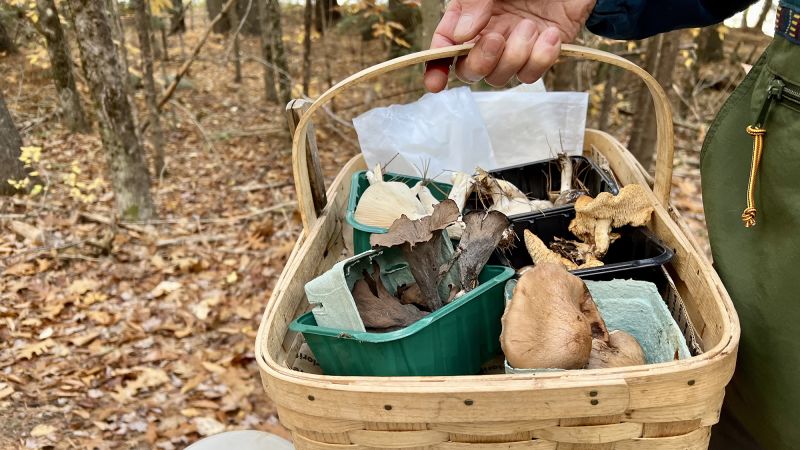…
People have been foraging for mushrooms since the Stone Age, but mycologists across the country say they’ve seen an increased interest in the hobby and a significant increase in poisonings, too.
“Fungi are kind of a hot thing right now,” said Dr. Matthew Nelsen, a research scientist at the Negaunee Integrative Research Center at the Field Museum in Chicago who is also president of the Illinois Mycological Association, a group that describes itself as “fungal enthusiasts.”
Mushroom motifs now decorate all kinds of things: tea towels, toddlers’ sweaters, table lamps. But when interest extends beyond mushroom stuffies to the real stuff, people really need to be careful.
…
Even experts can have a hard time telling the toxic from the edible just by sight, mycology instructor Rick Van de Poll said. He has to examine some of them under the microscope to be sure they’re safe.



I wish more people would take up an interest in cultivation of mushrooms. Some of them, like most oyster strains, are dead simple. You can grow them on old shipping boxes or kids’ homework. Anything derived from wood, they don’t care.
Much lower risk of harm and a great way to recycle paper goods into edible protein. And any size will do! Want a ton? Use 5 gallon buckets with holes drilled on the sides. Want a small amount? Seed a 2 liter bottle and pop the whole thing out into a bucket to fruit.
Other species, like log growers, will produce 3-10x/yr for years (5-10+ years depending on species and log) with zero effort other than maintaining moisture/humidity, once the log is set up in a space like an old aquarium with cracked glass - knock out the panel and install screen to use it for ventilation. It’s just a matter of sourcing the right log, a busted aquarium of the right dimensions (typically free) and some spores or seed substrate.
And the leftover mycelium is great in gardens as compost, and you might get a bonus mushroom here or there from it! Decomposers tend to work very nicely with food crops.